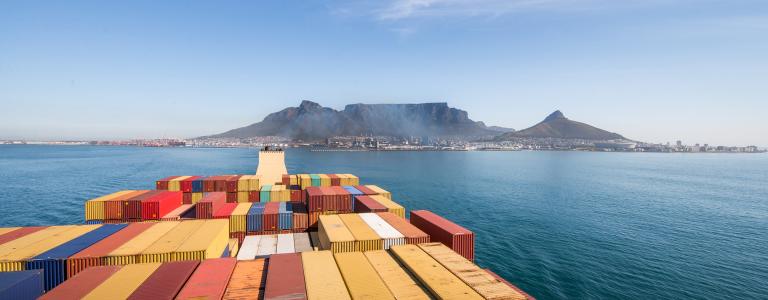India Seeks to Strengthen its Longstanding Ties with Africa
India attempts to play catch-up in a bid with China over commercial influence in the continent of Africa. A two-day investment meeting held in New Delhi featured more than 40 African officials from 17 countries to discuss how India and African nations can further facilitate trade and investment.
More than 40 high-level officials from 17 African countries attended an investment meeting in India last month aimed at beefing up commercial relations between the two trade partners. India is trying to strengthen its ties with Africa in a bid to catch up with China, whose trade with the continent climbed 35% from 2020 to reach a record-high USD 254 billion last year—mainly due to an increase in Chinese exports.
India is among the many countries wary about Beijing’s growing influence on the continent. Beijing has pumped billions of dollars into Africa over the last decade, building roads, bridges, and power installations in return for access to markets and resources.
Indian Foreign Minister Subrahmanyam Jaishankar told the meeting that Indian–African trade reached USD 89.5 billion in the fiscal year that ended on March 31, 2021, up almost 60% from the previous year. However, data from the Ministry of Commerce & Industry show that bilateral trade between India and the 48 countries of sub-Saharan Africa amounted to USD 46.8 billion in 2020-2021, down from USD 55.7 billion the year before. India has a negative trade balance with sub-Saharan Africa, ministry figures show.
Ministers and other officials from Burkina Faso, Cameroon, Eswatini, Nigeria, South Sudan, and Zambia were among those attending the 2-day meeting in New Delhi. The CII-EXIM Bank Conclave on India-Africa Growth Partnership was launched in 2005 with the support of India’s Ministry of External Affairs and Ministry of Commerce & Industry to encourage the development of private investment from India in African countries. Over the years, the meeting has “emerged as one of the largest congregations of senior ministers, policymakers, and business leaders from Africa and India, cutting across sectors” and is playing a “pivotal role in encouraging Indian companies to establish and grow their footprint in Africa,” according to the conclave website.
India’s main exports to Africa are refined petroleum products and pharmaceuticals. Africa primarily exports crude oil, gold, coal, and other minerals to India. India is now one of the top five investors in Africa, with about USD 74 billion of investments. Most Indian investments in Africa go to Mauritius, Mozambique, Sudan, Egypt, and South Africa. Indian firms are also increasingly active in countries rich in natural resources, such as Ghana and Nigeria. Several Indian multinationals have major interests on the continent, with strategic sectors including agribusiness, pharmaceuticals, information and communications technology, and energy.
Indian Commerce and Industry Minister Piyush Goyal told participants at the meeting that his government is keen to clinch a trade agreement with Africa. Such an accord “is going to be promising for both India and Africa, because this is where the markets and opportunities are present,” he was cited as saying at the meeting.
You might also be interested in
CSDDD: EU's Due diligence law vote should drive supply chain sustainability efforts
The European Parliament has voted to adopt the Corporate Sustainability Due Diligence Directive, aiming to address the environmental and social impacts of the supply chains of Europe's large corporations.
Africa Steps Up to Reshape International Tax Rules
As new technologies, shifting demographics, and climate change affect the global economy, tax rules are getting reformed. African policy-makers are seizing the opportunity to push for a fairer system.
Agreement on Climate Change, Trade and Sustainability: A landmark pact for trade and sustainability
The ACCTS pact, signed by Costa Rica, Iceland, New Zealand, and Switzerland, aligns trade and environmental policies, tackling fossil fuel subsidies, eco-labels, and green trade.
Addressing Carbon Leakage: A toolkit
As countries adopt ambitious climate policies, this toolkit examines strategies to prevent carbon leakage—when production and emissions shift to nations with weaker climate policies—and explores the trade-offs of each approach.
